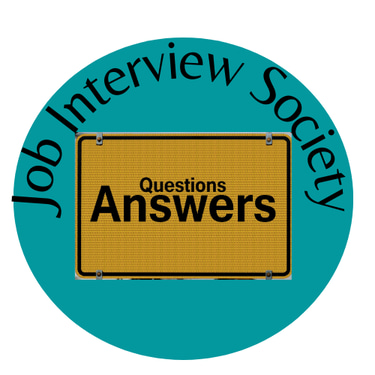Efficient Interview Scheduling & Organization
Discover effective strategies for scheduling and organizing multiple interviews seamlessly. Enhance your hiring process with our expert tips on interview scheduling and management.
INTERVIEW PREPARATION GUIDE
12/1/20248 min read


Introduction to Multi-Interview Scheduling
In today's fast-paced hiring environment, the ability to efficiently schedule multiple interviews has become an essential skill for both candidates and recruiters. The recruitment process often involves several rounds of interviews, which may include one-on-one sessions as well as panel discussions. Effective multi-interview scheduling not only streamlines the hiring process but also enhances the candidate experience, allowing for a more organized and coherent evaluation of potential employees.
One of the main challenges candidates face during this process is managing their time effectively. With multiple interviews often conducted in a short timeframe, candidates must juggle various schedules while preparing for diverse interview formats and questions. This necessitates a level of organization that can be overwhelming, particularly for those who are also working or studying concurrently. Additionally, candidates must remain adaptable, as interviews may be rescheduled or require shifts in focus to accommodate different interviewers, each presenting unique expectations.
On the other hand, interviewers encounter their own set of challenges while managing multi-interview scheduling. They must coordinate the availability of multiple stakeholders, align their assessment criteria, and ensure a consistent interview experience across various candidates. This complexity can lead to scheduling conflicts, miscommunications, and even delays, which can negatively impact the hiring process and candidate perception of the organization.
Given the competitive nature of the job market, understanding the intricacies of multi-interview scheduling is critical. Companies that master this art not only enhance their recruitment efficiency but also position themselves as attractive options for top talent. As this blog post unfolds, we will delve into practical strategies and innovative tools designed to tackle the complexities of scheduling multiple interviews, ultimately paving the way for a smoother recruitment journey for all parties involved.
Understanding the Interview Landscape
In the evolving landscape of hiring practices, it is crucial to understand the various types of interviews that may be conducted. Each format serves distinct purposes and can significantly influence the scheduling and overall organization of the interview process. The most commonly encountered interview types include one-on-one, panel, group, and virtual interviews, each carrying its unique considerations.
One-on-one interviews are perhaps the most traditional format. Typically involving a single interviewer and interviewee, this format allows for in-depth discussion and personal connection. However, scheduling can become challenging if either participant has conflicting commitments, especially in the context of tight recruitment timelines. The flexibility of choosing a suitable time for both parties is crucial in ensuring a smooth process.
Panel interviews, which involve multiple interviewers questioning a single candidate, can be an effective way to evaluate the applicant from different perspectives. However, coordinating the schedules of multiple participants can complicate logistics. Time zones may pose additional challenges when panel members are located in different regions, emphasizing the need for clear communication and advanced planning.
Group interviews, where various candidates are interviewed simultaneously, foster a competitive atmosphere and allow interviewers to assess interpersonal skills and teamwork. While this format may save time, it may require more careful scheduling to ensure that all candidates are available on the same day and that sufficient time is allocated for each candidate to demonstrate their capabilities.
Lastly, virtual interviews have gained prevalence, particularly in a globalized work environment. Though they provide the advantage of convenience, managing different time zones becomes critical, and technical issues can disrupt the flow of the interview. Selecting the appropriate interview format based on participant availability and other logistical factors is essential to streamline the scheduling process and enhance the overall interview experience.
Best Practices for Scheduling Interviews
Scheduling interviews can often be a complex task, requiring careful consideration and effective communication. To streamline this process, one of the best practices is to utilize digital tools such as calendars and specialized scheduling software. These platforms not only allow for easier date and time selection but also facilitate real-time updates, ensuring that all parties remain informed of any changes. Tools like Google Calendar or scheduling applications like Calendly can help eliminate back-and-forth emails, making the scheduling process more efficient.
Setting clear timelines is another vital aspect to consider when scheduling interviews. Establishing a timeline helps ensure that all participants are aware of deadlines for scheduling and provides a framework for managing the recruitment process. For instance, candidates can be informed about the expected time frame for interview scheduling, as well as how quickly they can anticipate feedback. This transparency promotes a sense of respect for everyone's time, making the process smoother for both interviewers and candidates.
Providing candidates with options for interview times can also enhance the scheduling process. By offering multiple time slots, candidates are able to select the most convenient option for themselves, which can lead to higher engagement and reduces the likelihood of scheduling conflicts. This can be particularly important for candidates who may be currently employed or have other commitments. Additionally, in situations where interviews are to be conducted remotely, it is essential to clearly communicate the platform to be used (e.g., Zoom, Microsoft Teams) and provide any necessary access information ahead of time.
Effective communication remains at the heart of successful scheduling. Automated reminders can be sent to both interviewers and candidates as the interview date approaches, which can significantly reduce no-shows. Keeping all parties aligned and informed is crucial to navigating potential scheduling hurdles, ensuring that the interview process is as seamless as possible.
Preparing for Multiple Interviews: A Checklist
When it comes to conducting multiple interviews, proper preparation is essential to ensure a smooth and efficient process. To assist in this endeavor, a comprehensive checklist can streamline your preparation efforts, ultimately enhancing the overall quality of the interviews conducted. Below is a well-rounded checklist that covers key aspects of preparation.
First and foremost, creating an interview guide is crucial. This document should outline the objectives of the interviews, expected outcomes, and a standardized set of questions tailored to each candidate. The guide ensures consistency across interviews, allowing interviewers to accurately compare candidates’ responses.
Next, it is vital to set up the necessary technology. Ensure that the interview platform is functioning well, whether it’s a video conferencing tool or an online assessment platform. Conduct test runs ahead of the scheduled interviews to identify any technical issues. Ensuring reliable internet connectivity and providing a quiet, distraction-free environment will further foster productive discussions.
Preparing interviewers is another important step. Schedule a briefing session with all involved personnel to discuss the interview format, roles, and strategies to obtain valuable insights from candidates. Providing training on effective questioning techniques can also significantly enhance the interviewers' effectiveness, yielding better evaluations.
Additionally, gathering candidate materials well in advance is critical for thorough assessment. Ensure all relevant documents, such as resumes, cover letters, and reference letters, are organized and readily accessible. This preparation allows the interview panel to familiarize themselves with each candidate’s background before the interview, yielding more informed questions and discussions.
Lastly, consider establishing a feedback mechanism. Outlining how interviewers will provide documentation and assessments post-interview can streamline the decision-making process. By adhering to this checklist, organizations can master the art of scheduling and organizing multiple interviews effectively.
Creating Infographics and Charts for Organisational Clarity
In an era where information overload is commonplace, visual aids like infographics and charts have emerged as vital tools for enhancing organisational clarity, particularly when managing multiple interview schedules. These visual aids serve to transform intricate data into easily digestible formats, allowing stakeholders to comprehend timelines, responsibilities, and processes at a glance. By representing interview schedules and applicant details visually, one can facilitate a better understanding for all involved parties.
Effective infographics may include timelines to showcase key dates, flowcharts illustrating the interview process, and pie charts depicting candidate status breakdowns. For instance, a flowchart detailing the various stages in an interview process can help team members quickly grasp who is responsible for which step, thus eliminating potential overlaps or confusion. Moreover, pie charts can provide insights into the diversity of candidates, which not only assists in making informed decisions but also promotes a fair selection process.
There are numerous online tools that can assist in creating these impactful visual representations. Platforms such as Canva, Piktochart, and Lucidchart offer user-friendly interfaces and a variety of templates specifically designed for crafting infographics and charts. These tools come equipped with features that enable users to customise their visuals, ensuring that they align with the specific needs and branding of the organisation. Users should consider incorporating colour coding to differentiate various roles or stages within the interview process, enhancing readability and comprehension.
The strategic use of infographics and charts in interview scheduling not only fosters clarity but also streamlines communication among team members. By converting complex information into clearly defined visual formats, organisations can reduce the likelihood of miscommunication and maintain an efficient interview process. Ultimately, the incorporation of these essential tools promotes better planning, coordination, and execution in managing multiple interviews.
Common Mistakes to Avoid in Multi-Interview Scheduling
Scheduling multiple interviews can be a complex task, and there are several common pitfalls that individuals may encounter during this process. One of the most prevalent mistakes is double-booking candidates or interviewers. This occurs when two or more interviews are scheduled for the same time slot, causing confusion and potential delays. To mitigate this risk, it is essential to utilize a centralized scheduling tool that allows all parties to see availability in real-time. Additionally, confirming appointments with all participants in advance can help eliminate overlaps.
Another frequent issue is poor communication, which often leads to misunderstandings about interview formats, timings, or locations. When coordinating interviews, clear communication is paramount. Ensure that all involved parties are informed of any changes promptly and provide explicit details regarding the interview structure, whether it's in-person, via phone, or video conference. Establishing a consistent channel of communication—such as email or a dedicated messaging platform—can significantly enhance the coordination process.
Lack of flexibility is another mistake that can hinder the scheduling process. Interview availability can fluctuate due to unforeseen circumstances, and rigid schedules may not accommodate last-minute changes. It is beneficial to include buffer times between interviews and offer a range of potential time slots. This approach allows for adjustments without derailing the entire interview schedule.
Finally, neglecting to follow up post-interview can lead to candidates feeling undervalued or uninformed about the interview outcome. Implementing a follow-up protocol, where feedback and next steps are communicated efficiently, helps maintain engagement with candidates and fosters a more positive applicant experience. By acknowledging and addressing these common pitfalls, individuals can enhance their multi-interview scheduling efforts, leading to a smoother and more organized selection process.
Conclusion and Moving Forward with Confidence
In the realm of recruitment, mastering the art of scheduling and organizing multiple interviews is paramount to ensuring a smooth and effective selection process. By strategically planning the interview timelines, establishing a system for managing candidates, and maintaining open communication with all parties involved, hiring managers can significantly enhance the overall efficiency of their recruitment efforts. The key takeaways from this discussion underscore the necessity of being methodical and adaptable in order to tackle the complexities associated with conducting numerous interviews.
One of the essential insights gleaned from this discourse is the value of leveraging digital tools and platforms that facilitate seamless scheduling and organization. By utilizing advanced calendar applications, automated reminders, and collaborative software, recruiters can streamline their workflow and reduce the likelihood of miscommunication. Additionally, creating a standardized interview format helps ensure consistency across all interviews, enabling fair assessments of candidates.
As you move forward in your recruitment journey, it is vital to apply these insights effectively. Begin by reviewing your current processes and identifying areas for improvement. Experiment with different scheduling techniques to discover what works best for your team and candidates alike. Furthermore, consider investing time in resources aimed at enhancing your interview skills, such as workshops, online courses, or literature on effective interviewing practices.
The significance of effective scheduling and organization cannot be overstated. By applying the strategies discussed, you will not only improve your recruitment process but also increase the likelihood of securing top talent. Embrace these principles confidently as you navigate the multifaceted world of recruitment, ensuring that every interview counts in ultimately building a successful team.
